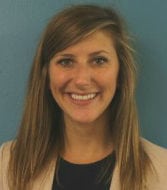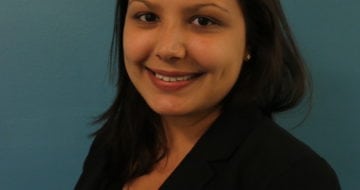UPCOMING AYPF EVENTS
Webinar – Replicating Success: CUNY’s Accelerated Study in Associate Programs (ASAP) (Thursday, March 19, 2015)
AYPF EVENT DETAILS
Forum – Opportunities for Youth in Transition from Foster Care: Youth Perspectives (Friday, February 20, 2015, 12:00PM-1:30PM) Following the January 30 forum on state perspectives for creating opportunity for foster care youth, this forum will include an overview presentation on AYPF’s new issue brief, Creating Access to Opportunities for Youth in Transition from Foster Care, by authors Erin Russ and Garet Fryar. Panelists will then share their experience with the foster care system and describe how their program has supported youth in their goals of attaining higher education. Mary Lee, National Transitional Living Coordinator for Youth Villages; Sheemeca Berkley, Great Expectations Advisor for Northern Virginia Community College; and a youth from each program will share their knowledge and expertise about the intricacies and difficulties in navigating and coordinating support systems.
Webinar – Replicating Success: CUNY’s Accelerated Study in Associate Programs (ASAP) (Thursday, March 19, 2015 2:00PM-3:15PM) Join AYPF and MDRC to learn about the City University of New York (CUNY) ASAP, a structured degree pathway program for associate degree-seeking students currently found at six community colleges. Key program components include full-time enrollment, block scheduled first-year courses, cohort course taking by major, financial support, intrusive and mandatory advisement, a student-success seminar, career services, and tutoring. ASAP targets low-income students with some developmental needs and consistently realizes two and three-year graduation rates that are more than double those of similar comparison group students. Panelists will discuss the program, evaluation results, and replications effort; they include Sue Scrivener, Senior Associate, MDRC; Donna Linderman, University Associate Dean for Student Success Initiatives, CUNY; Brett Visger, Associate Vice Chancellor, Institutional Collaboration & Completion, Ohio Board of Regents will present.
AYPF BIENNIAL SURVEY
| AYPF is continually thinking of how to improve our services and offerings, and your input plays a key role. Our biennial survey takes only a few minutes to complete, and your answers will be kept completely confidential. Please access the survey here |
AYPF PUBLICATIONS AND RESOURCES
| Please visit our YouTube channel at http://www.youtube.com/amyouthpolicyforum for video clips of events, interviews and more. |
Forum For Thought Blog The Forum for Thought blog is operated by the American Youth Policy Forum and highlights diverse points of view and information from the intersection of policy, practice, and research.
Our recent blog series, “Got Work: Some Positive News on Helping Young Adults Get Good Jobs” focuses on programs and services that help disconnected young adults develop college and career skills and find productive employment. Posts in this series include:
- AYPF Executive Director Betsy Brand’s outline of postsecondary and career challenges many young people face, and some promising practices to address them.
- Lori Stumpf, Project Director of the @LIKE Program, describes her organization’s efforts to help vulnerable older youth find success in postsecondary education and the labor market.
- Youth voices take center stage as they reflect on the value of the @LIKE program, including dedicated life coaches, an emphasis on wraparound services, and supports to help youth earn the National Career Readiness Certificate (NCRC).
In other blog news, guest blogger Esther Quintero-Corral, Senior Research Fellow at the Shanker Institute takes us on a multimedia tour of the nature and importance of relationships in connecting education research to policy and practice.
Click here to view all AYPF publications
Click here to find all briefs and reports
RECOMMENDED READING AND RESOURCES
Check these out – recommended reading from the AYPF staff:
National Center on Time & Learning Supporting Student Success through Time & Technology is a guide for district leaders and school practitioners interested in implementing a blended learning strategy in their schools. The guide details the current blended learning approaches at six expanded learning time schools across the country and highlights their lessons learned. Additionally, it outlines seven design and implementation steps for practitioners interested in using technology to personalize student learning.
Achieve Closing the Expectations Gap 2014 Achieve’s ninth annual “Closing the Expectations Gap” report details states’ progress in adopting and implementing a coherent set of reinforcing policies that will prepare all students for college and careers, including aligning academic content standards in English Language Arts/literacy and mathematics with the demands of college and careers, establishing graduation requirements that expect all students to complete a college- and career-ready course of study, developing statewide assessment systems anchored to college- and career-ready expectations, and creating comprehensive accountability and public reporting systems that promote college and career readiness for all students.
The Annals of the American Academy of Political and Social Science The Engagement Gap: Social Mobility and Extracurricular Participation among American Youth This report presents new analyses of four national longitudinal surveys of American high school students that reveal a sharp increase in the class gap in extracurricular involvement. Since the 1970s, upper-middle-class students have become increasingly active in school clubs and sport teams, while participation among working-class students has veered in the opposite direction. These growing gaps have emerged in the wake of rising income inequality, the introduction of “pay to play” programs, and increasing time and money investments by upper-middle-class parents in children’s development.
CLASP The President’s Budget: Select Investments In Education and Employment Pathways for Vulnerable Youth CLASP reflects on President Obama’s FY 2016 budget, with a close look at improving education and workforce outcomes for disconnected youth and the administration’s focus on employment among youth and young adults, especially those from low-income households.
Transforming Schools Using Project-Based Learning, Performance Assessment, and Common Core Standards In this book, authors Bob Lenz, Justin Wells, and Sally Kingston draw on the example of the Envision Education schools, as well as other leading schools around the country, to show how the concept of deeper learning can meet the need for students who are both college and career ready and engaged in their own education. The authors also explain how project-based learning can blend with Common Core-aligned performance assessment for deeper learning.
African American Policy Forum Black Girls Matter: Pushed Out, Overpoliced and Underprotected The report recommends policies and interventions to address challenges facing girls of color, including revising policies that funnel girls into juvenile supervision facilities; developing programs that identify signs of sexual victimization and assist girls in addressing traumatic experiences; advancing programs that support girls who are pregnant, parenting, or otherwise assuming significant familial responsibilities; and improving data collection to better track discipline and achievement by race/ethnicity and gender for all groups.
Schott Foundation The Schott 50 State Report on Public Education and Black Males This report is an effort to collect and publish national data on the four-year graduation rates for Black males compared to other sub-groups and to highlight how disparities in opportunity creates a climate and perception of a population who is less valued.
PolicyLink/USC Program for Environmental and Regional Equity National Equity Atlas This tool serves as a comprehensive data resource to track, measure, and make the case for inclusive growth. Explore the Atlas to get data on changing demographics, racial inclusion, and the economic benefits of equity—in your region, state, and nationwide.





